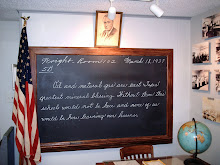Burnaby teachers raising pipeline concerns
The Burnaby Teachers' Association is raising concerns that the new Kinder Morgan oil pipeline will run close to even more local schools.
The teachers' association is opposed to the pipeline expansion and has joined a growing number of applicants hoping to intervene in the National Energy Board's upcoming hearing for the project.
"The concern is if there is a pipeline rupture – and it's inevitable there will be, we just don't know how bad it's going to be – our members, as far as we know, haven't received any training on how to deal with a pipeline leak," said Patrick Parkes, the association's first vice-president. "A pipeline leak is pretty different from an earthquake or a fire. I don't know what you can do to adequately protect staff and students from airborne issues."
Read article: http://www.burnabynow.com/
Resources:
The Burnaby Teachers' Association is raising concerns that the new Kinder Morgan oil pipeline will run close to even more local schools.
The teachers' association is opposed to the pipeline expansion and has joined a growing number of applicants hoping to intervene in the National Energy Board's upcoming hearing for the project.
"The concern is if there is a pipeline rupture – and it's inevitable there will be, we just don't know how bad it's going to be – our members, as far as we know, haven't received any training on how to deal with a pipeline leak," said Patrick Parkes, the association's first vice-president. "A pipeline leak is pretty different from an earthquake or a fire. I don't know what you can do to adequately protect staff and students from airborne issues."
Read article: http://www.burnabynow.com/
Resources:
The Smalley Foundation is committed to increasing safety and awareness for those who live, work and play near oil-and-gas equipment and pipelines. We do this by empowering the general public, training first responders and partnering with the industry. http://smalleyfnd.org/
Bring the Lessons of 1937 to Your School
